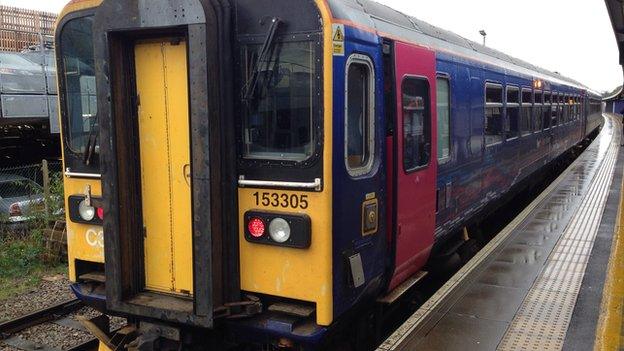Rail fares increase by 1.1% in England, Scotland and Wales
- Published
Rail fares rise: What you need to know
A 1.1% average increase in the cost of train tickets in England, Wales and Scotland has come into effect.
The rise in regulated fares, including season tickets, is capped at no more than July's RPI inflation rate of 1%.
However, unregulated fares, such as off-peak leisure tickets, can go up by as much as train companies like.
It is the smallest rise in six years, but campaigners said some passengers would be "amazed" by any rise because of the "dire" quality of some services.
Punctuality figures published by Network Rail show more than one in 10 trains (10.7%) arrived at their final destination at least five minutes late in the past 12 months.
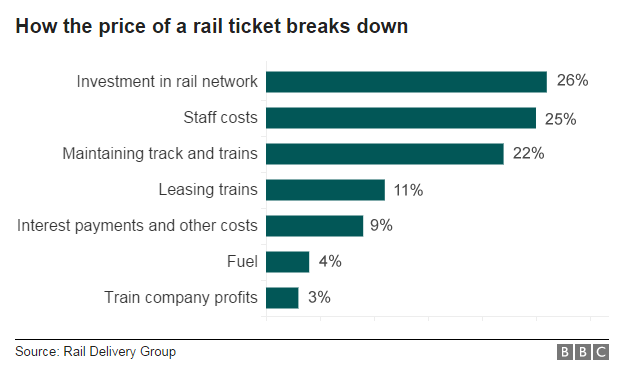
Anthony Smith, from independent watchdog Transport Focus, said passengers were "paying their part" and it was now time for the rail industry to deliver on the basics.
Bruce Williamson, of campaign group Railfuture, claimed fares were "increasingly divorced from reality".
"High street prices have remained stagnant for more than a year, with the official CPI inflation figure hovering around zero, yet the government thinks it's fair to make rail travel even more expensive," he said.
Season ticket increases
Under government rules, the rise in regulated fares was restricted to no more than the Retail Prices Index measure of inflation over the year to July, which was 1%.
Over the long term, RPI has tended to record higher inflation than the other measure of rising prices, the Consumer Price Index, which was 0.1% during the year.
The increases, which were announced in December, cover fares in England, Scotland and Wales. Northern Ireland is treated separately.
Commuters with annual season tickets can find out how much their fare has gone up by on the National Rail Enquiries website.
A 12-month pass from Basingstoke to London will cost £4,196 in 2016, up by £40 from £4,156.
Workers travelling from Gloucester to Birmingham will have to pay out £36 more than the 2015 price of £3,860 for a ticket.
Passengers making daily journeys between Liverpool and Manchester will see their season tickets rise by £28, up from £2,960 to £2,988.
'Truly staggering'
Paul Plummer, of the Rail Delivery Group (RDG) which represents train operators and Network Rail, said on average 97p in every pound from fares was spent on trains, staff and other running costs.
"We know that nobody likes to pay more to travel by train, especially to get to work, and at 1.1% this is the smallest average increase in fares for six years."
Labour said commuters would be paying on average 25% more for rail season tickets since David Cameron took office.
Some were paying a "truly staggering" rise of almost £2,000 in cash terms since 2010, shadow transport secretary Lilian Greenwood said.
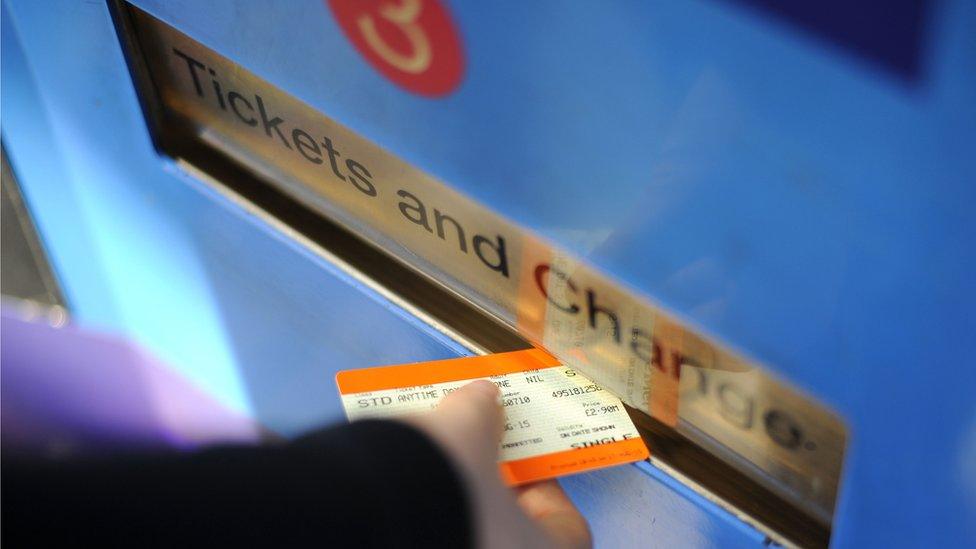
The analysis compared costs on over 200 routes between when the Conservatives came to power and the new prices for 2016.
The highest increase found was on a Virgin Trains season ticket between Birmingham and London Euston which has risen by £1,984 and now costs more than £10,000 for the first time.
Action for Rail - a campaign by rail unions and the TUC - said privatisation of the railways was to blame.
It claimed £1.5bn could be saved over five years if routes with franchises up for renewal were returned to the public sector.
- Published4 December 2015
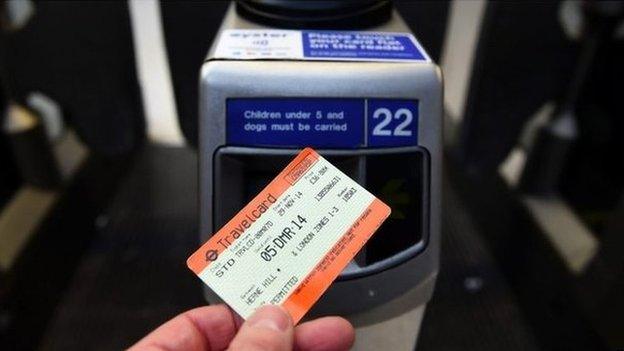
- Published4 December 2015
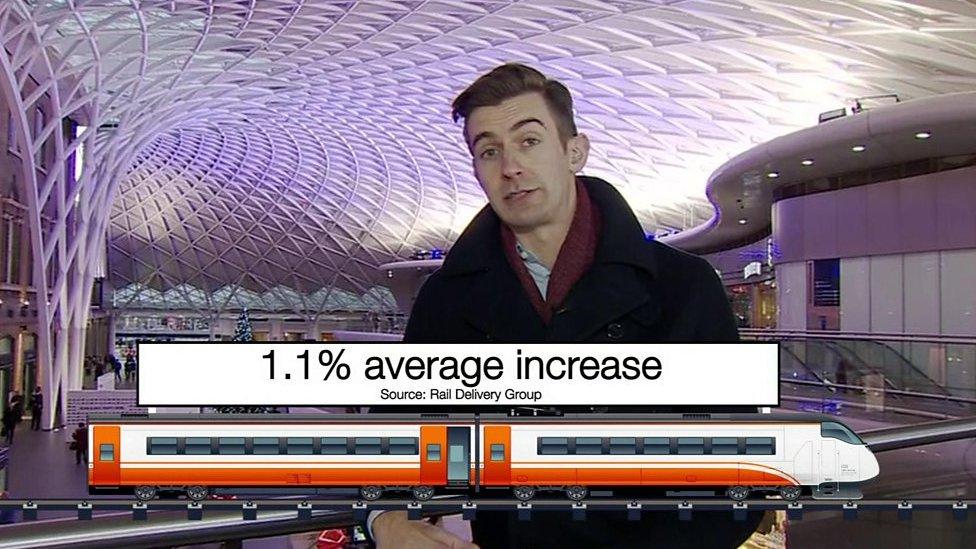
- Published20 September 2015
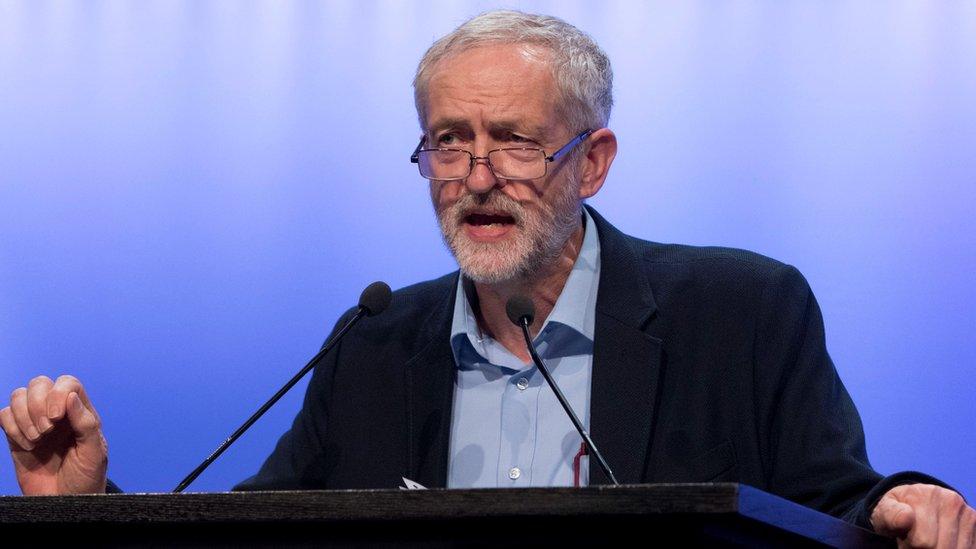
- Published18 August 2015
